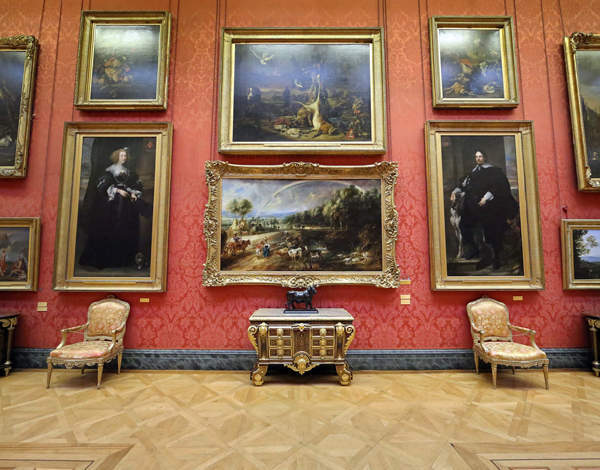

For a discussion supposedly about museums in the 21st century, the panellists and questioners at the Wallace Collection last night sure found it hard to see beyond the next general election.
The eminent panel, moderated by Fiammetta Rocco of The Economist, joked about seeing the state of museums in 2020 with twenty-twenty vision, but they seemed largely blind about anything after then. This may be because the debate was originally supposed to be about 2020 (as one panellist indicated) or because the imminent future is so bleak they can’t imagine museums in 2090 or even 2030. (I had to leave halfway through the questions so I may have missed one, but the trend was for shortsight.)
So, while the remarks from Christoph Vogtherr, director of the Wallace Collection; critic, curator and academic Robert Hewison; David Anderson, director general of National Museums Wales; and Maria Balshaw, director of the Whitworth Gallery and Manchester City Galleries, were generally incisive and persuasive, they tended to revolve around a need for more money by 2020. Only Anderson baldly stated that what museums needed was a strategy for what museums should be and how they could become it.
Robert Hewison set two of the terms of the discussion in his introductory speech. First, he spoke of the ‘public realm’ being both physical – those spaces society meets in – and metaphysical – our culture’s common currency. Maria Balshaw picked this up with her remark about grant-in-aid cuts putting us ‘in danger of undoing the social fabric of the country we live in’.
Hewison also mentioned the commercial considerations and ‘neoliberal values’ (possibly ‘values’ should go in sarcastic quotation marks) which were driving the government’s nihilistic approach to museums. As David Anderson later said, ‘Neoliberalism doesn’t believe in the past and it doesn’t believe in the future either.’
Perhaps most pointed was Christoph Vogtherr’s remark that ‘I haven’t read the word “art” in any letter from DCMS [the Department for Culture, Media and Sport] since I started my job.’
The discussion had been very UK-focused and conceptually bland, with no-one suggesting any fundamental re-evaluations of what museums should do or what they should be for, so I asked a question which I hoped bore on this: what should global museums do about the destruction of antiquities – by ISIS and others – around the world today?
After a somewhat bemused silence from the panel, Fiammetta Rocco handed the question to Robert Hewison, who picked up on something revolutionary – or rather someone revolutionary – which had been ignored thus far: the British Museum’s director, Neil McGregor, who has left his colleagues in the dust, as it were.
‘We have the example of what Neil McGregor has tried to do and the leadership that he’s shown through the British Museum and the relationship with Iraq,’ said Hewison. ‘The institution has taken upon itself to do something that the government appears to be rather reluctant to engage with.’
Hewison was referring to the Iraq Project, about which the BM’s website says: ‘Since 2003 the Museum has been actively engaged in providing our Iraqi colleagues, at their request, with as much conservation, archaeological and curatorial assistance as it can reasonably provide.’ This has included ‘a unique joint project to assess damage at a number of archaeological sites in southern Iraq’.
Rocco then mentioned the other important thing McGregor has done with the BM: the loan of a Parthenon marble to Russia at a time of high tension between London and Moscow.
The panellists broadened the question to museum acquisitions and how they could avoid buying looted art; London, said Anderson, ‘is one of these places where a lot of illicit trade passes through’. Rocco, dealing with arguments over ownership, said, ‘The model of two institutions or two countries acting like three-year olds saying, “It’s mine!” has to come to an end.’ (No idea who she was thinking about.)
This is, in sum, the museum as activist, as diplomat – as something which looks beyond its own community. This was a topic I would have liked the panel to explore in much more detail, because it seems like part of a broad vision for museums in the next century. Instead of polishing their static collections, museums – big and small – could be the sites of dynamic global interchange.
But the next question was about which one thing the panellists would ask the new culture minister for the day after the 2015 election. With blinkers like these, museums are in philosophical as well as material trouble.






